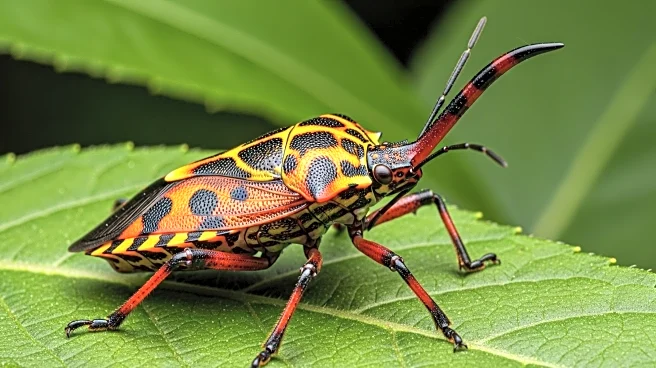What's Happening?
A recent study conducted by the Smithsonian Tropical Research Institute has uncovered the defensive behavior of the matador bug, Bitta alipes, found in Panama's rainforests. Previously thought to be a courtship display, the bug's leg-waving behavior is now understood to be a defense mechanism against predators. Researchers observed that the matador bug waves its legs significantly more when in the presence of predatory praying mantids compared to harmless katydids. This behavior appears to deter attacks, as mantids did not attack bugs that were actively waving. The study suggests that the waving may serve as a warning signal or confuse predators, enhancing the bug's survival.
Why It's Important?
The discovery of the matador bug's defensive behavior highlights the complexity of evolutionary adaptations in insects. Understanding such survival strategies can provide insights into the biodiversity and ecological dynamics of tropical ecosystems. This research not only sheds light on the matador bug but also suggests a broader evolutionary pattern among related species. The findings could influence future studies on insect behavior and predator-prey interactions, potentially impacting conservation strategies and ecological research methodologies.
What's Next?
Further research is needed to fully understand the mechanisms behind the matador bug's waving behavior. Scientists may explore whether similar behaviors exist in other insect species and how these adaptations have evolved. The study could lead to broader investigations into the ecological roles of such behaviors and their impact on ecosystem diversity. Additionally, the findings may prompt conservationists to consider behavioral traits when developing strategies to protect insect populations.
Beyond the Headlines
The study of the matador bug's behavior raises questions about the ethical implications of human intervention in natural ecosystems. As researchers continue to explore the intricacies of insect behavior, there is a need to balance scientific inquiry with the preservation of natural habitats. This research underscores the importance of understanding and respecting the complex interactions within ecosystems, which are often disrupted by human activities.











